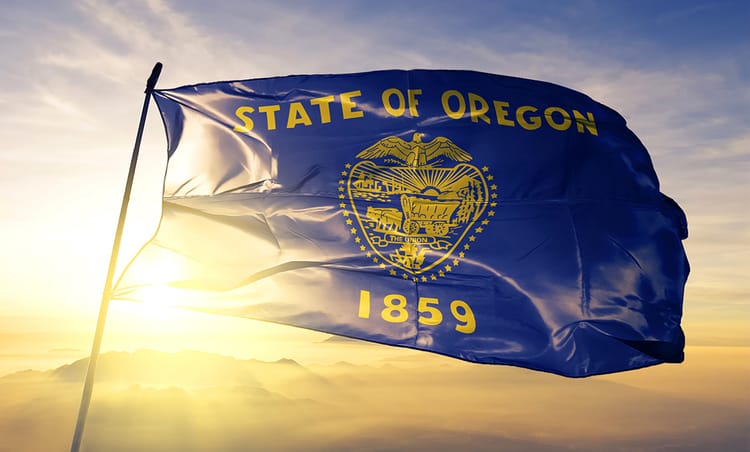Oregon’s Revenue Boom Sees Boost From Inflation’s Shadow

On Wednesday, Oregon’s Office of Economic Analysis presented the latest economic and revenue forecast to the legislature’s tax-writing committees, the last update lawmakers will receive before the five-week “short” session, beginning on February 1, 2022. In a usual year, the initial forecasts of the two-year budget cycle are uneventful as the economists only set the close of session estimate a few months prior. With this forecast, however, the state budget and the revenues that drive it continue to defy past norms.
Despite severe supply constraints, Oregon’s economy continues to run on all cylinders. Household incomes and consumer spending are continuing to outpace previous estimates and the cooling-off period that many expected to hit around this time has not materialized. The supercharged, albeit still challenged, economy continues to drive a revenue boom for the state. As household income and consumer spending remain strong, businesses have more pricing power over goods and the ability to pass on higher supply chain costs, resulting in increased profitability.
As in much of the world right now, the conditions driving Oregon’s improved revenue outlook are challenged by surging inflation. Most of the questions raised by lawmakers were specific to the impacts on individuals, the state budget, and the overall economy, and whether the upbeat forecasts can hold true. Inflation is the underlining risk to the state’s economy and, thus, the revenue picture for the legislature. In the short term, inflation is pushing individuals into higher tax rates and making products more expensive, generating a substantial increase in taxable income, driving the rosy outlook. The question puzzling most economists, and, certainly, lawmakers, is how long can the positive trends last.
These conditions—higher incomes, increased spending, and improved profits—are driving an overall increase for virtually all of the state’s revenue instruments. Given the strong performance of Oregon’s taxes, the economists revised their revenue forecast significantly upward from three months ago, adding $751 million in revenues. Additionally, and, perhaps, more consequential for the legislature’s budget politics, the economists are already forecasting a personal income tax “kicker” refund of $558 million for the budget cycle.

Although the income tax kicker has become a staple of Oregon’s fiscal politics, triggering in each of the last four budget cycles, this projection comes exceptionally early in the budget cycle. In fact, the announcement marks the first time the kicker has come into play heading into a short session since voters amended the constitution to allow annual sessions in 2010. Typically, if revenues are positive in the forecast before a short session, they are only up nominally and do not trigger the refund, providing the legislature with a surplus to balance the budget or dedicate to new or expanded programs in the lead-up to the election season. Now, however, with a large kicker already included in the forecast, the legislature must approach the session without its usual fiscal cushion. It is noteworthy that the legislature has other buckets of surplus funds to deploy for the session. “Other funds,” including non-income tax revenues such as lottery, consumption, and federal funds, remain abundant, lessening the potential fiscal pressure.
Notably, there could be a few surprises waiting for the legislature when they convene in February. In particular, Congress is advancing a multi-trillion-dollar “soft” infrastructure measure, called the “Build Back Better Act,” which would inject another round of fiscal stimulus into state programs. To fund these programs, Congress aims to raise taxes on businesses and higher-income individuals. Since Oregon, like most states, relies on federal tax rules, the state would duplicate some of these tax increases as part of its own tax code. These changes will likely result in a substantial adjustment to the state revenue outlook and fuel heated debates during the short session over the virtue of raising taxes at a time when individuals and businesses are struggling to keep up in a challenging economy.





